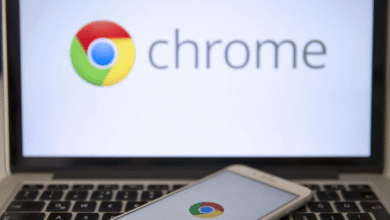How 5G is Changing the Landscape of Digital Marketing and Advertising

As we enter the era of 5G technology, the digital marketing and advertising landscape is changing rapidly. 5G is set to revolutionize the way businesses market and advertise their products and services, enabling faster and more efficient communication with consumers. In this article, we will explore the impact of 5G on digital marketing and advertising, and how businesses can leverage this technology to stay ahead of the game.
What is 5G and How Does it Work?

5G is the latest and most advanced wireless network technology, which promises to provide faster internet speeds, greater bandwidth, and lower latency than its predecessors. It uses a combination of radio waves and high-frequency millimeter waves to transmit data at lightning speeds, with the potential to reach up to 100 times faster than 4G networks.
Faster Data Transfer Speeds
The most significant impact of 5G on digital marketing and advertising is its faster data transfer speeds. With faster internet speeds, businesses can deliver content to their customers much more quickly and efficiently, providing an enhanced user experience. This also means that businesses can use more sophisticated marketing techniques, such as real-time personalized marketing, which requires high-speed data transfer to be effective.
Increased Accessibility
5G networks provide greater accessibility to businesses, allowing them to reach customers in remote locations and areas with poor connectivity. This opens up new markets for businesses, enabling them to expand their customer base and increase their revenue.
Enhanced Customer Experience
The speed and low latency of 5G networks also allow businesses to provide a more seamless and immersive customer experience. This means that businesses can use high-quality video and audio content, augmented and virtual reality, and other interactive features to engage with their customers and promote their products and services.
Improved Targeting
5G technology also enables more precise targeting of customers, allowing businesses to deliver more relevant and personalized content. With the increased speed and accessibility of 5G networks, businesses can collect and analyze data in real-time, allowing them to make data-driven decisions and target their customers more effectively.
Increased Use of AI and IoT
The combination of 5G technology with Artificial Intelligence (AI) and Internet of Things (IoT) devices will transform the digital marketing and advertising landscape. With the increased speed and low latency of 5G networks, businesses can collect and analyze data from multiple IoT devices in real-time, allowing them to make more informed decisions and provide a more personalized customer experience.
Challenges and Concerns
While 5G technology offers many benefits to businesses, there are also challenges and concerns that need to be addressed. One major concern is the potential for increased cyber threats, as more devices become connected to the internet. There is also a risk of increased data privacy concerns, as more personal data is collected and stored by businesses.
Read More:5G Security: Addressing the Risks and Opportunities of Next Generation Wireless Technology
Conclusion:
5G technology has already begun to transform the landscape of digital marketing and advertising, and it will continue to do so in the years to come. With its lightning-fast speed, low latency, and high capacity, 5G enables marketers and advertisers to deliver content and experiences that were previously impossible or impractical. The ability to offer immersive AR/VR experiences, real-time personalized messaging, and high-quality video content will make it easier for brands to engage with consumers and drive conversions. Additionally, 5G will open up new opportunities for location-based advertising, IoT-connected devices, and machine learning-powered targeting. As 5G networks continue to roll out, digital marketers and advertisers need to adapt their strategies to take full advantage of the new capabilities and possibilities.
FAQs:
Q: What is 5G technology? A: 5G is the fifth generation of wireless technology, which offers faster download and upload speeds, lower latency, and higher capacity than previous generations of wireless networks.
Q: How will 5G impact digital marketing and advertising? A: 5G will enable digital marketers and advertisers to deliver more immersive, personalized, and high-quality content and experiences to consumers. It will also open up new opportunities for location-based advertising, IoT-connected devices, and machine learning-powered targeting.
Q: What are some examples of how 5G will change digital marketing and advertising? A: 5G will enable marketers to offer more immersive AR/VR experiences, real-time personalized messaging, and high-quality video content. It will also enable location-based advertising on a more granular level, and allow for better connectivity and data exchange with IoT-connected devices.











